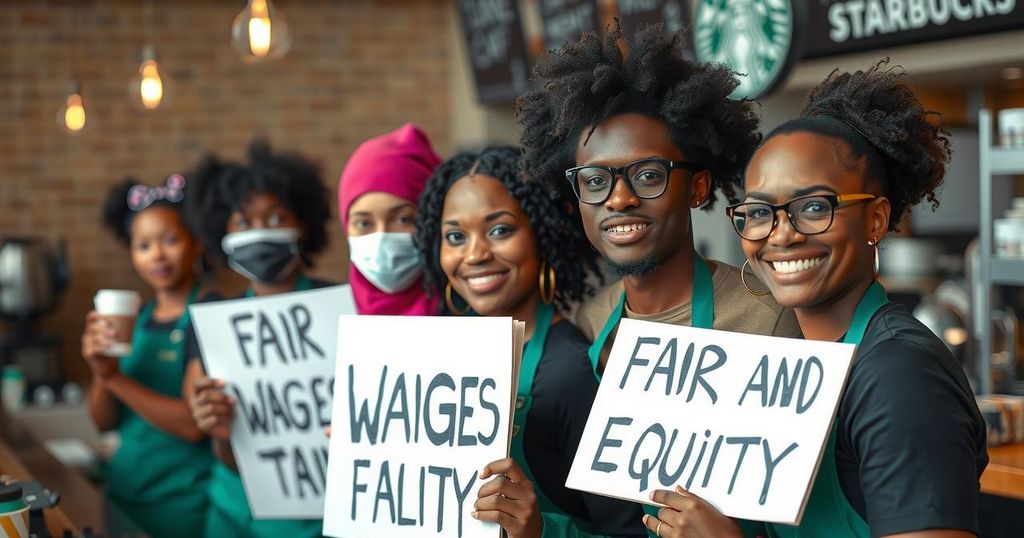Starbucks baristas in Colorado, joining a national movement, are advocating for fair wages, better scheduling, and equity through organized protests and unionization efforts. This coincides with a broader push among over 520 locations seeking union recognition amid claims of unfair labor practices. The movement is gaining momentum during the company’s busy season, emphasizing the desire for enhanced working conditions and sustainable wages for workers.
Starbucks baristas in Colorado are increasingly vocal about their demands for fair wages and improved working conditions as they proceed with unionizing efforts. Recently, baristas at a Denver location filed for a union election, while other baristas from the area protested nearby, advocating for fair scheduling, equity, and better pay. This movement coincides with a national trend where over 520 Starbucks locations across the country are actively seeking union recognition amid significant labor unrest, particularly during the company’s busy season.
Luis Sanchez Hernandez, an 11-year shift supervisor, expressed the pursuit for better scheduling practices to enhance work-life balance. He articulates a collective pride in participating in the labor movement alongside fellow workers. Similarly, Brianna da Silva, a barista with one year of experience, emphasizes the importance of solidarity among workers to foster improved work environments.
Starbucks Workers United has reported that numerous workers from various locations joined in solidarity at a prominent Denver store to champion their cause. Criticisms have emerged regarding the company’s 1.5% annual raise, with one worker labeling it as insufficient amidst rising inflation. In the wake of walkouts initiated by several locations, Starbucks acknowledged minimal disruptions, maintaining that their operations were largely unaffected.
The company’s response claimed that allegations of union-busting were unfounded, standing by the legality of their actions. However, the National Labor Relations Board previously ruled against Starbucks in a separate case, indicating unlawful termination of a union organizer in Superior. Despite the ruling, the affected worker reported a lack of resolution regarding the promised compensation from Starbucks. Furthermore, claims concerning unfair labor practices continue to mount against the company.
Shay Mannik, a barista and union organizer at one location, stated that demonstrations were a last resort, underlining the critical need for sustainable wages that allow workers to live comfortably without relying heavily on tips.
This ongoing labor movement shines a light on the larger national conversation regarding workers’ rights and the importance of unions in the current economic climate, especially as employees seek more equitable treatment within corporate frameworks.
The recent surge in unionization efforts among Starbucks baristas in Colorado mirrors a nationwide trend where workers are standing united against perceived unfair labor practices. Amid what Starbucks describes as their busiest season, baristas have organized protests and filed for union elections, emphasizing the demand for fair wages, improved scheduling, and equitable workplace conditions. This movement reflects broader labor concerns as employees in various sectors, including Amazon workers, simultaneously express their desire for better compensation and rights.
In conclusion, the call for fair wages and improved working conditions among Colorado Starbucks baristas highlights a significant shift toward unionization, reflective of a broader movement among workers nationwide. Their efforts underscore the necessity for equitable treatment in the workplace as labor disputes continue to escalate. As these baristas engage in protests and seek union recognition, they not only advocate for their rights but also contribute to a larger dialogue about labor rights across the country.
Original Source: www.cbsnews.com






